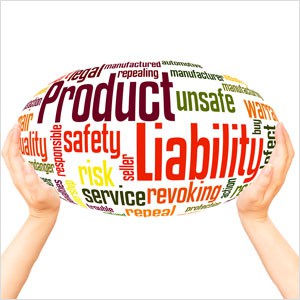
In this article, you can discover…
- How fault is determined in a product liability claim.
- How insurance companies often seek to shift blame, and how to fight back.
- How negligence impacts product liability claims.
What Do You Need To Prove A Defective Product Caused My Injuries?
To prove that a defective product caused your injuries, a lawyer needs to be able to demonstrate that the product was dangerous. This danger may spring from a design or engineering flaw, from some element of the product being poorly built and causing injury, or from product warnings that were poorly worded or missing.
Is An Injured Person Ever Partially Responsible For The Injuries Sustained From A Defective Product?
Often in a product liability case, companies will claim that a consumer has used the product incorrectly or done something dangerous to cause the injury. Or, if the victim has died in a car accident, a car company will claim the fatal crash was the driver’s fault, and not due to a problem with the car itself.
Even if you are described as being partially responsible for how an accident unfolded, this doesn’t excuse the manufacturer from producing a dangerous product. This is why it’s incredibly important to have sound legal help in determining product liability and reviewing your case, as well as examining the defective item.
Would The Injured Party Still Be Eligible For Compensation If He Or She Was Partially At Fault In Texas?
Yes, if the product itself was a factor in the severity of the accident or injury. For example, you may find yourself driving at moderate speeds and over-correcting to avoid hitting another vehicle. Your over-correction causes your SUV to flip, but on rolling over, your vehicle crumples like it’s made of tin foil, causing serious injury.
While your over-correction may have caused the vehicle to flip, a well-designed, safe SUV wouldn’t crumple and collapse in on itself in a roll-over accident.
Manufacturers have a legal responsibility to consider and build around foreseeable imperfect use of their products (such as over-correcting while steering an SUV), and they are required to protect consumers in light of these possibilities.
What Does Breach Of Warranty In A Product Liability Case Mean?
Products have what are called implied warranties. This means that when you buy a product for a certain intended purpose (such as a car battery powering your vehicle), you assume that it’s going to work as expected and will be safe.
Should the battery explode, you may have a breach of warranty in this case. This implied warranty claim simply says that the product is defective and not fit for the purpose for which it was sold, as normal use of the product later resulted in injuries.
How Is Negligence Defined And Established In A Defective Product Liability Case In Texas?
Negligence is the failure to do something that a reasonable person in the same situation would have done. In product liability cases, consumer negligence may sometimes be cited as leading to an injury. In other words, the consumer may have failed to do something reasonable and prudent and was injured as a result.
However, it’s important for you to note that an accusation of consumer negligence does not necessarily nullify your case or excuse companies producing unsafe products. Getting a strong legal opinion and representation is always the best option, no matter what your case may initially look like.
What about manufacturer negligence? In the case of a product, manufacturer negligence means failing to explain to a consumer the hazards involved in normal use of the product. It could also include failure to warn a consumer about what improper use of the item looks like – or failure to put safeguards in place to prevent injury.
How Is Misrepresentation Defined And Established In A Defective Product Liability Case In Texas?
Misrepresentation in the context of product liability cases involves misrepresenting the qualities, suitable uses, or characteristics of a product. An example of this would be ATVs. These large, unwieldy vehicles may be marketed as a safe and fun family ride, when in fact, it can be quite dangerous for children to sit on or use them.
If you relied on a misrepresentation, bought a product for an advertised use, and were harmed as a result, you could have a claim for misrepresentation.
What Are Common Defense Strategies Insurance Companies Use To Deny Or Limit Defective Product Claims And Settlement In Texas?
The most common response from insurance companies is to seek to blame the consumer. Insurance companies will go to great lengths to argue that you, as the consumer, were misusing their product and are, therefore, responsible for your injuries or pain.
Another common tactic is to get rid of key evidence. Without the original product, it can be difficult to prove a case. For this reason, it’s important to quickly retain a lawyer so that preservation letters can be formally sent out to responsible parties, requiring them to hold on to evidence. What’s more, the right legal help can help you combat insurance companies’ claims, present evidence correctly, and prove manufacturer liability. For more information on Fault In A Product Liability Claim In Texas, an initial consultation is your next best step. Get the information and legal answers you are seeking by calling (956) 628-7569 today.
